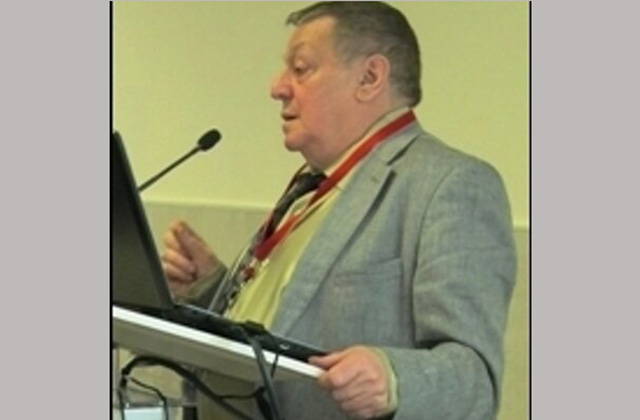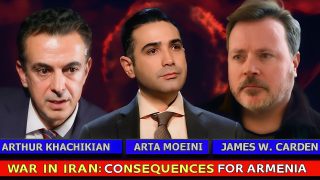No Solution—is Probably the Best Solution

Nagorno-Karabakh problem: a special star in the Galaxy of conflicts
Basically, the variety of local conflicts that sooner or later can trigger the 3rd World War are of 3 kinds. The first and foremost are the conflicts where one side is more or less right, while the opposite one is more or less wrong. Western Sahara, for example, that for 50 years unsuccessfully trying to become an independent state under the name of Democratic Republic of Western Sahara has every moral, historic and demographic right to separate from Morocco. It’s population is ethnically non-Arab, it never participated in any form of Morocco’s political or cultural life and has always wanted to become a part of pan-African community. Morocco is wrong preventing those people to become an independent nation.
Hong Kong was by force taken from China by Britain 100 years ago and China had every right to demand its return. This had been done in a spirit of compromise that allowed Hong Kong to keep its democratic institutions and economy while China exercises the supreme power in such areas as foreign affairs and defense.
The second type of conflicts is also quite wide-spread: it is the case where both sides are wrong – the endless confrontation between Israel and Palestinians is the most evident example of that type of conflicts. The Palestinian side does not want to realize that Israel is there to stay with every historic right to do so. The Israeli side, meanwhile, stubbornly refuses to discontinue their humiliating occupation of those Palestinian territories that will never be a part of Israel. At the same time, it is painfully clear that the Israeli-Palestinian conflict cannot continue to be a permanent feature of the Middle Eastern mosaic – sooner or later it will trigger a big regional war.
The third type of local conflicts are the ones where both sides are right and consequently the solution looks almost impossible. The issue of Nagorno-Karabakh is one of them. History had build a merciless platform for countless tragedies for Armenian people in XX century. Brutality and betrayal of all big powers that could protect a small country and its population after many historical disasters practically made the situation quite hopeless.
Joseph Stalin, a communist dictator with an odd ability to put in the soil of history poisonous seeds of future conflicts, had one illusion typical for dictators: he believed that his Empire will be eternal. That’s why among other demographic experiments like bringing Bukhara and Samarkand populated by Tajik into the Uzbek Republic, creating Kazakhstan out of nothing or taking a province of Romania and pronouncing it to be a state of Moldavia, he took historically populated by Armenians area of Nagorno-Karabakh and included it into never existing before Republic of Azerbaijan. Stalin explained it once to Lazar Kaganovich according to latter’s memoirs: “Armenians in Azerbaijan like in Karabakh or Nakhijevan, Tajiks in Uzbekistan, Russian proletarians in Donbas or Kharkov in the agricultural Ukraine will cement the friendship and union within our state.”
History had proved otherwise. The Communist Empire collapsed and the official peoples’ friendship had collapsed next morning after that. Yet the wounds of Stalin’s demographic violence are being felt now and will be felt for many years to come.
In case of Nagorno-Karabakh there are 2 practically unbridgeable sides of the question. The fact that Karabakh is populated by the Armenians and historically for thousands years was a part of Armenian dimension is evident. At the same time from the legal point of view it had been a part of Azerbaijan – and that is also undeniable.
While the local players, that is Azerbaijan, Armenia and Nagorno-Karabakh, could find a compromise solution should they be left alone, the political reality will prevent them from reaching this. Big players are behind all of the participants and consequently the strategic interests of those giants had become more important.
Turkey is probably the most active and the most dangerous actor in this new version of Karabakh political performance. In his desire to make Turkey an Islamic and regional superpower Erdogan wants to strengthen the relations with Azerbaijan to the level of strategic, economic and military union. That’s why the Turkish presence in Azerbaijan – from investors to military instructors – is growing at such a great speed. At the same time such a new-born union allows Erdogan to have an upper-hand in his conflict with Putin’s Russia.
Russia is in a very difficult position. While Armenia is its ally and Russian military bases are in Armenia (one of few foreign military bases Russia still has in the world), it continues to supply Azerbaijan with weapon, participate in Azerbaijan’s economic development, although to a lesser degree than before and tries to keep relations with Baku as friendly as possible.
Turkey is a member of NATO and the Alliance cannot ignore the situation when one of its members has increasingly been involved in military conflicts whether it is Syria or Nagorno-Karabakh – or potentially in both of them.
The only solution here is the well-known political phenomena: deep freeze. The conflict that cannot be solved in the foreseeable future, yet continues to be always pregnant with the outburst of big multi-sided war should be at least kept well-frozen. Next generations maybe will be wiser and find better solution.
Ilya Gerol
International Columnist
Montreal

























